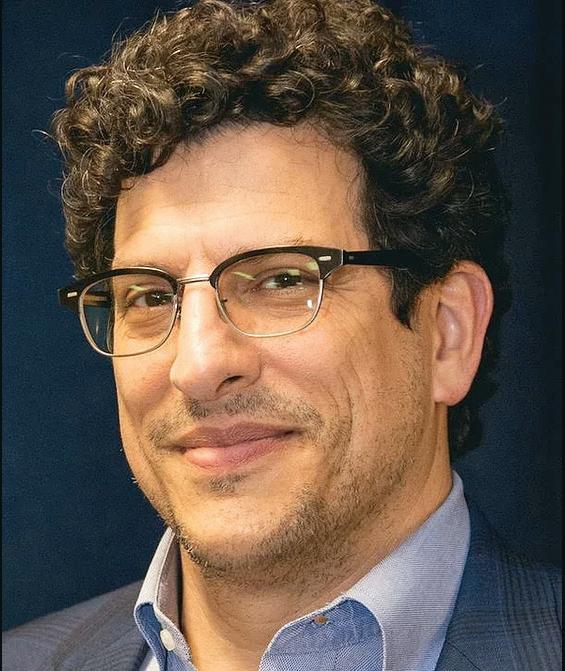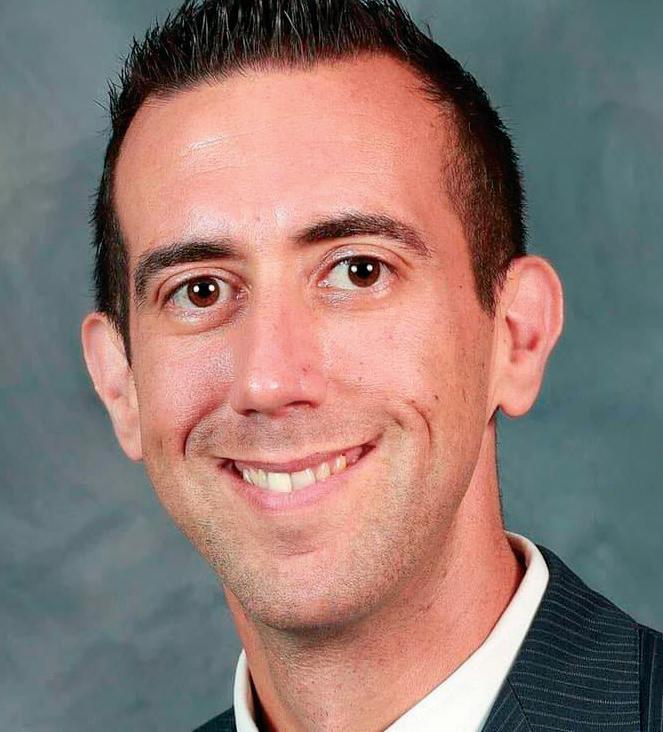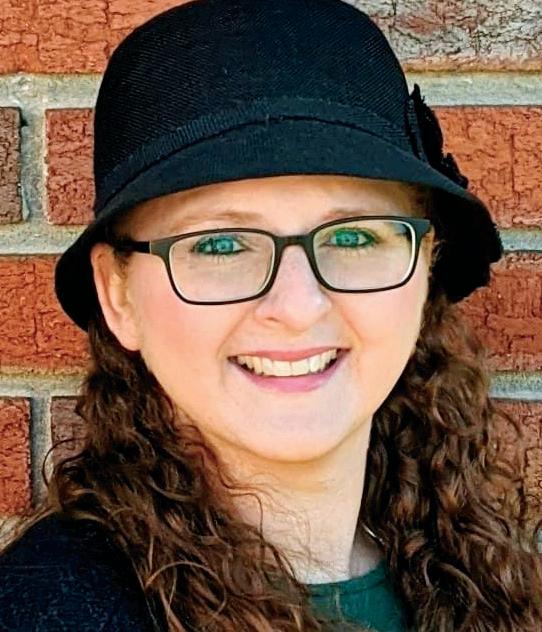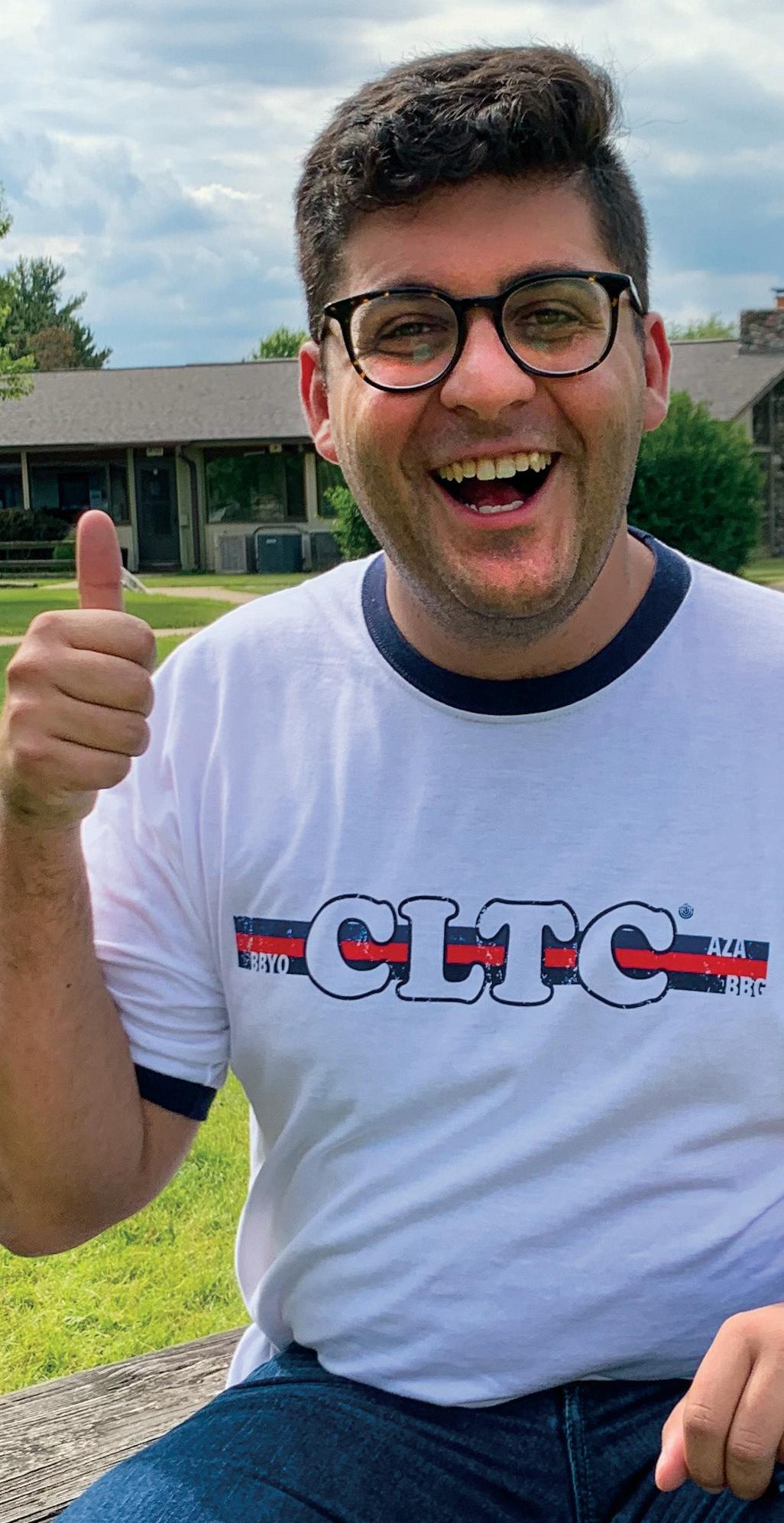
7 minute read
Spertus Students on the Front Lines
Read and watch at spertus.edu/profilesProfilesfrom the Field We connected virtually with Spertus alumni and students, checking on their welfare amidst the pandemic. Visit spertus.edu/profiles for a deeper dive into these stories, including video clips.
Ensuring Connection
Advertisement
Cathy Gardner is the CEO of the Jewish Federation of Greater Dayton. She oversees Dayton’s Integrated Federation and its agencies, including its Jewish Community Center, Jewish Family Services, and Jewish Foundation. She has been working as a Jewish communal professional for 27 years. She is also a master calligrapher who talked to us from her home office and studio.
Gardner spoke of the challenges for Dayton’s tight-knit, 4,000-person Jewish community: “When COVID-19 became so dangerous and we all had to isolate at home, we very quickly adjusted our programming. Our Federation is responsible for connecting our community through our agencies, foundation, and newspaper. We had many activities planned—and we knew we had to maintain critical ties. Immediately, we developed a virtual platform and a concept built around the theme stay connected.” Coming up on the docket was Dayton’s Jewish Film Festival, which they ambitiously transformed to a view-at-home format with opening night at the drive-in.
Leveraging skills gained at Spertus, Gardner forged initiatives to maintain communal cohesion. With her team, she added virtual daily drop-in experiences (Mental Health Monday, Trivia Tuesday) for community members to connect, akin to visiting a virtual coffee shop. Importantly, they also heightened their social services, ensuring that those in need could get help accessing vital services including food and health care.
Gardner also implemented new ways to communicate with her staff. She said, “We are nothing without the people who work for us. They needed to be supported while doing things they’d never done before. I needed to pay attention to their needs.”
Gardner reported that, as quickly as she and her team were able to open virtual doors, community members were able to come together and feel they were a part of something. She said, “That was the most incredible aspect of this very quick shift.”
Spertus students & alumni serving and shaping their communities
Our conversations confirmed the resourcefulness and resilience of these committed individuals, who work for a range of Jewish organizations across the country. These remarkable leaders utilized what they have learned at Spertus, applying Jewish learning and professional best practices to serve their organizations and communities in this challenging time.
Saving jobs While Serving Needs
Until November, Michael Rawl was Executive Director of the JCC of Youngstown, OH. He is now CEO of the JCC in Buffalo, NY.
Recalling the early days of the pandemic, Rawl shared what many of us felt: “We didn’t know what was happening. There was great fear and uncertainty.” Marshalling his learning on leading through change, Rawl set his eyes on the long term and successfully positioned the JCC of Youngstown to thrive in the virus economy. The organization emerged having served urgent community needs— and, incredibly—having the most financially successful year in its history.
Rawl’s COVID-19 response included a number of consequential steps. Key among them, he saved—then expanded—the community’s mobile meal program. In March, in an emergency meeting with Jewish agency executives, he learned that the nursing home, under lockdown, could not continue the meal program that served homebound seniors. “I was on the other side of the table, very concerned about the fate of the JCC and its employees. The JCC had two large kitchens, so I offered to take on the contract.”
To Rawl, two things seemed clear. There might be increased need because of the pandemic, and if they ramped up the number of meals, it could save staff jobs.
With energy, commitment, and a critical understanding of both finance and operations, he snapped into action. He engaged the JCC’s health, wellness, and membership teams to implement a phone bank and contact members to determine how they could assist. They ended up cooking, packaging, and delivering 4,000 meals a week, with the program run by lifeguards, personal trainers, front desk staff, and preschool teachers. Rather than furloughing staff, Rawl redeployed them, providing them “an opportunity to have meaningful impact on the community. You can imagine how powerful that is. They rose to the occasion.”
Aaron Weil is Executive Director and CEO of the Central Florida Hillel. In his reflections on 2020, Weil thinks back to other times of crisis, including when he lived in Israel during the Second Intifada. Today’s college students—in their late teens and early twenties—don’t have that kind of perspective. Weil said, “They are suffering. They have mental health needs. They need connection.” Under Weil’s leadership, Central Florida Hillel created an ambitious array of new offerings. Among them is a wellness program that provides one-on-one online counseling to students, regardless of their ability to pay. With frankness, Weil said, “we evolved our understanding of how to support students in the virtual world. This crisis has forced us to transform how we do business.”

Online Engagement
Laurence Bolotin | Spertus Alumnus Certificate in Jewish Leadership
Laurence Bolotin is the Evelyn R. Greene Executive Director of AJC Chicag0. Between global and regional programs, AJC’s calendar is traditionally crammed with educational and advocacy opportunities. But Bolotin knew that he was responsible for one additional essential piece—ensuring that local AJC constituents remain connected and engaged. When COVID-19 hit, he and his staff began personal check-ins with board members and then implemented new, interactive, more intimate programs. “We needed to give constituents opportunities to connect on a deeper level, even if we’re not face-to-face.” In this time of challenge, Bolotin has managed to maintain his office’s offerings and even facilitate an important outside initiative. In October, he launched two local cohorts of Jewish Women International’s At the Table: Men as Allies in Workplace Equity. Drawing on lessons in collaboration and power sharing, he said, “I want to see what I can do with my voice, allyship, and influence to make a difference.”

Responding with Compassion
Gabby Burger is Director of Jewish Educational Engagement at the Macks Center for Jewish Education in Baltimore, MD. Compassion is the value running through Burger’s response to the pandemic. Compassion for the families that the Macks Center for Jewish Education serves and compassion for the staff she leads. After listening to constituent families, Burger and her team began to offer their programs through multiple formats—in-person, live-streaming, and recorded for viewing later. They were astonished to discover that with the choice of formats, they were welcoming more people than ever before. With her trademark compassion, Burger said, “It was hurtful to realize that we had been missing a portion of our population…We don’t want to leave them behind anymore. We didn’t know we were missing them, until we knew. And now we’re never going to let them go.” She credits Spertus for teaching her the importance of providing staff and constituents the opportunity to “kvetch a little bit, to mourn what they’ve lost, to own that loss, and then to move on.”

Building Community

Ian Solow-Niederman is the Regional Director of BBYO’s Rocky Mountain Region. Last March, Solow-Niederman was visiting hotels to prepare for a regional convention when he learned that BBYO needed to shut down in-person activities. He had to share that news with teen leaders, even as he was still grappling with its implications. “One of the interesting things about working for BBYO,” he said, “is that a lot of your processing involves helping teens process.” He leveraged lessons of crisis leadership to “help them get to a place where they could be successful.” That approach—being honest and transparent, embracing vulnerability—typifies Solow-Niederman’s leadership style. He treats teens with respect, encouraging them to lead. “The reason we’ve been successful is that our teens are actively involved in the process.”









